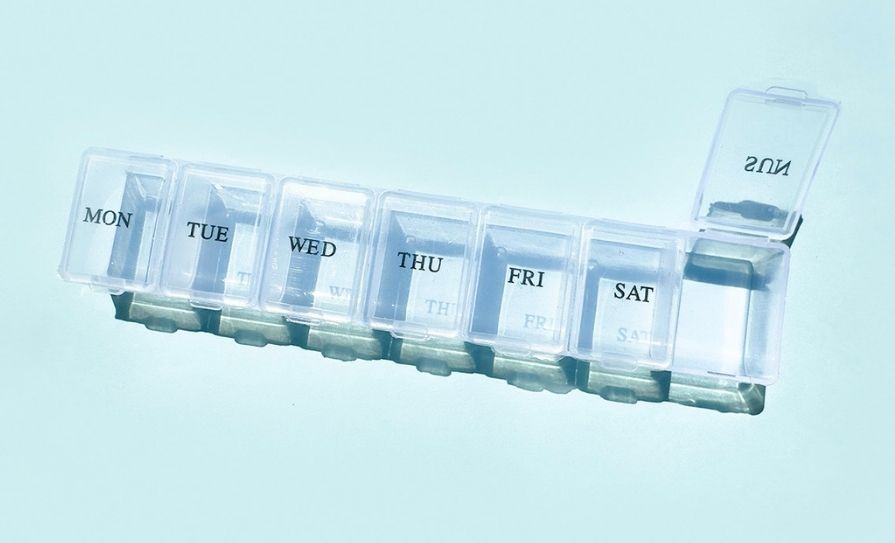Mullingar Pharmacist Eamonn Brady describes his experience of working as a pharmacist and operating pharmacies during the pandemic and speaks about what he sees as the future for pharmacy from professional and business perspectives
Despite social distancing, pharmacies offer a warm, personal service and a friendly face, with advice people can rely on. People want to do business with people and want a personal touch, and this is still true, despite the Covid-19 pandemic. Key to survival of any business has always been the ability to adapt; this has never been truer than now. Covid-19 means normal business will not resume in the medium- to long-term and many changes will be permanent. Since early in March, the key to doing business has been encouraging people to minimise contact, protecting both staff and customers. Minimising contact goes against the grain of what a retail and health business like pharmacy encourages in normal times, but a global pandemic creates new priorities.
It all changed for my pharmacies on Monday 9 March
My pharmacy in Clonmore, Mullingar, specialises in supply of medication to nursing homes. A nursing home we supply in the east of the country had a confirmed Covid-19 case on 9 March; this gave my staff and I an early wake-up call to the threat of the virus. We were already taking extra hygiene measures, but overnight on 9 March, everything changed in the way we operate.
From that date, we started sanitising everything coming in and out of the pharmacy, we increased the use of PPE (counter screens, masks, etc), introduced stricter social distancing and hand hygiene rules, and teams within the pharmacy were separated to reduce infection risk and ensure business continuity if infection did occur. Other measures included providing medication reviews with nursing homes via video or phone call, and pharmacist talks for nursing home residents being provided via video or phone call instead of visiting the nursing home. We are now many months operating this way and while we naively thought it was temporary, it slowly dawned on us in the following weeks and months that many of these measures were here to stay. Unless we have further surges, the use of appropriate PPE and social distancing will make the likes of the pharmacist visiting nursing homes for medication reviews possible again soon.
Support to nursing homes
Sadly, many of our nursing home patients passed away from Covid-19. My team and I knew many of them personally. They were not a statistic or just a name on a prescription to us. It is easy to view the nightly death rate from Covid-19 and not put much thought into it as they started to seem like ‘only numbers’, but when you know many of the patients affected, it is sobering. During the height of the crisis, the staff at nursing homes did an amazing job in difficult circumstances and my pharmacy team did all in our power to support the nurses, doctors, patients and patients’ families in any way we could. Much of this support was advice and back-up for palliative care. It is well documented that the Government and HSE were slow to introduce more resources to help nursing homes manage an unprecedented situation. There were many factors that didn’t help nursing homes at the start of the pandemic, such as loss of staff to the HSE hospital recruitment drive, untested patients being transferred from hospitals to nursing homes, and unavailability of PPE, to name a few. Thankfully, measures are in place to prevent another surge of infections in nursing homes, such as what we saw in March and April, and while there will be challenges going forward, the most vulnerable people in nursing homes have a greater level of protection from the measures now in place.
Pharmacy during a pandemic
Pharmacy from a business perspective was in a very privileged position to have been able to continue to trade during the lockdown. This allowed continued supply of vital medicines. I operate two pharmacies in Mullingar, a high-street pharmacy in Pearse St in Mullingar, and a pharmacy in Clonmore, Mullingar (in Mullingar Business Park), which specialises in supplying nursing homes. The primary consideration over the last few months was ensuring continued supply of medicines and the health and wellbeing of staff, customers and patients. The support of patients in nursing homes and supporting the management and staff of these facilities in difficult circumstances was especially important.
Difficulty getting new staff during the lockdown
I had many staff who had to take time off in the first weeks of the pandemic, as anyone with even mild cold- or flu-like symptoms had to self-isolate in case it was Covid; thankfully, none of them were positive for Covid-19 tests at the time. The three-week wait for tests in March and April was a massive problem for the business at the time. I had other staff who had to take time off, as they lived with family members in high-risk categories. It meant massive staffing challenges; my staff were brilliant at working through the extra workload to make up for the shortfall. I have found it very difficult to get extra temporary staff during the months of March, April, and May. Some of this in hindsight may have been due to the Covid payment, which meant people were not willing to give this up by taking on a job. From speaking to many other business owners, both pharmacies and other businesses, the Covid payment created issues in recruiting new staff and while the Government were right to introduce the pandemic payment to support staff and businesses during the enforced lockdown and I accept the Government were faced with an unprecedented crisis where they had to act quickly, there were unintended consequences which meant that businesses that had to continue to operate found it difficult to get new staff. Since May, the Government has been taking measures to ensure the Covid payment does not lead to manpower shortages in business, and this is welcomed. With a new Government now in place, they face the massive challenge of unwinding the Covid unemployment support payment, yet still trying to support businesses and employees impacted most by the pandemic.
Stockpiling of medications
At the start of the pandemic, wholesalers like United Drug and Uniphar struggled to keep up with demand for prescription and OTC medication, largely due to ‘panic’ stockpiling by people; this eased as we went into April and there have been no significant increases in medication shortages on top of what pharmacists encounter in normal times. For example, the recent supply issues with fluoxetine was nothing to do with the pandemic, we are told, but was more to do with worldwide ‘production and manufacturing’ issues that had become more prevalent prior to Covid-19.
Putting some services temporarily on hold
Pharmacies had to put some higher-contact services like blood pressure monitoring on hold during the height of pandemic surge, many of which are now being re-introduced with all necessary precautions.
In my pharmacies, we provide many high-contact services, like a beautician, chiropodist, reflexologist, physiotherapist, acupuncturist, counselling service, etc, and these ceased trading in March, as per Government ‘non-essential service’ guidelines; all are back up and running in a safe manner as of 29 June. Close contact services face massive challenges, but personal protective measures (ie, masks, screens) now allow these services to operate safely again following all Government and health advice. I had an inspector from the HSA inspect my pharmacies at the end of May and we found her very helpful and she gave some practical tips.
With the increasing importance of high uptake of the flu vaccine this autumn and winter, it will pose challenges for pharmacies due to increased demand, balanced with the need to adhere to all the extra hygiene precautions; however, our profession is more than equipped to meet these challenges.
Evolving the business
Since the Covid-19 crisis, my experience from doing business is that three things are important for people:
? To feel safe (from infection).
? Value for money.
? Convenient service.
More pharmacies offering prescription delivery
The IPU Covid-19 pharmacy business impact survey on the week commencing 20 April showed that 94 per cent of pharmacies were offering prescription delivery services; this was a massive benefit to those in vulnerable categories that had to self-isolate. Many pharmacies will continue to offer this service, especially with many people still isolating due to the continued threat of Covid. However, like many of the other extra costs of the likes of PPE, delivery costs are something pharmacies will have to absorb, which will lead to extra financial challenges.
Due to my nursing home delivery service, I have a team of delivery drivers and in March, some of the older ones decided to take a break for health reasons, but the amount of people offering to help deliver medicines was extraordinary, so I had no issues with new delivery drivers who stepped in to help. There are so many negative effects of this crisis, but the sense of community has been one of the positives.
Necessity is the mother of all invention
My pharmacy changed to make the customer experience more seamless and reduce contact risk. Measures I introduced in March included expanding my online sales range, offering online and WhatsApp prescription ordering options, and a quick ‘Drop, Collect and Go’ prescription service. These services proved popular, so will be here to stay. In hindsight, these are services I should have started years ago; sometimes it can take a crisis to see the wood from the trees.
Video training using Zoom
The move to offering remote services is not unique to pharmacy and with working from home becoming the norm, I have embraced the new technologies, like other sectors. I have been providing the likes of adrenaline pen training for teachers and parents for many years and up to the pandemic, I provided these demonstrations on-site at schools. The need for this type of training did not disappear just because of Covid-19, so I now provide training, including adrenaline pen training using Zoom; it means I can still give the same training, including a PowerPoint presentation, demo videos, taking questions, etc, via video call. I have provided Zoom training for groups ranging from three to 60 people at one time. I provide nursing home medication reviews either via Zoom video call or phone call. I had never even heard of Zoom up to March, so it was a learning curve getting up-to-speed providing training and services via video, but it shows how we can all adapt when we need too. Technology will increasingly help us meet the needs of patients.
E-Commerce
E-commerce growth in the three months March-to-June 2020 outstripped the e-commerce growth of the previous three years. Pharmacy being a traditional bricks-and-mortar business must evolve. Many small businesses like mine expanded their online sales offering due to the lockdown and have seen the benefits of increased sales. In a healthcare business like ours, ‘face-to-face’ interaction with patients and customers will continue to be an important part of our professional service, but online sales can complement our traditional sales model. Pharmacists, like other retail businesses, realise that online sales are the biggest growth area in retail; the pandemic has simply accelerated this growth.
Robotic Dispensing
Many pharmacies have been introducing robotic dispensing in recent years. There are many options on the market which can help streamline the dispensing process and free-up time to spend more time doing the likes of patient counselling. I introduced robotic dispensing in Whelehans Clonmore in January 2020 with a Synmed dispensing robot, which fills blister packs. While we knew it would be part of the business’s future growth strategy, the global pandemic has meant it will be more essential in the months and years ahead.
E-prescribing has finally arrived
Winston Churchill was quoted as saying: “Don’t let a good crisis go to waste.” Thankfully, the Department of Health and HSE took this advice when it came to e-prescribing. They initiated the move from paper-only prescriptions to electronic prescriptions in a matter of weeks.
Up to March 2020, Ireland’s onerous paper-driven prescription system required lots of physical ‘touch points’, as well as much unnecessary extra administration. E-prescribing in the natural glacial course of events was at least three-to-five years away through Sláintecare due to ‘stakeholder protectionism’ and the fear and cost of change. E-prescribing was signed into medicine legislation by the Minister for Health on 3 April. Since this new legislation, doctors can send prescriptions via the Healthmail system, a secure HSE email system which was in operation prior to his crisis but was not being utilised to its maximum potential. It is a simple yet effective solution. This legislation is described as temporary “due to the Covid-19 crisis” by the Department of Health; however, as it is working so well, it should stay as a permanent solution. There will be tweaks and improvements needed, but from a pharmacist and GP perspective, it cuts out much unnecessary administration and allows us more time to concentrate on what we are good at — caring for patients. During the crisis, other measures the HSE introduced, like allowing nine-month prescriptions instead of the maximum six months, and allowing 28-day supply on hospital prescriptions, have helped in reducing workload at a difficult time and will ideally be here to stay. Hopefully, our new Minister for Health Stephen Donnelly will not reverse any of these positive steps.

Trusted Advice
The pandemic increased the amount of ‘fake’ news going around, especially relating to health. There was lots of fake news circulating about the likes of ibuprofen and hydroxychloroquine relating to Covid-19. Reliable advice from trusted health professionals like pharmacists has become more important than ever. The May 2020 IPSOS MRBI Veracity survey of ‘Who the public most trust’ listed pharmacists second only to nurses as the most trusted profession in Ireland. Convenience and technology are key to business survival in the future, but people still want to do business with people and the personal touch is now more important than ever; the high esteem in which pharmacists are held shows that despite challenges, pharmacies have an opportunity to survive and thrive using old-fashioned ‘reliable service and advice’.
At the start of the pandemic, wholesalers like United Drug and Uniphar struggled to keep up with demand for prescription and OTC medication, largely due to ‘panic’ stockpiling by people…
New Pharmacy Contract is a chance to better utilise pharmacy
The IPU is due to negotiate a new pharmacy contract in 2020, something the Department of Health and HSE have put off for the last few years. With a new Government and new Minister for Health now in place, a new contract is an opportunity to expand the role of the pharmacist, and instead of ‘taking work from GPs’, it can allow pharmacists to complement and support overstretched GP services by taking on a few services. It is an opportunity to allow pharmacists to provide extra services, including expanded vaccine administration, medicine use reviews, minor ailment schemes and more changes from POM to P medication for the minor ailments. This will empower pharmacists to provide a better service to patients and ultimately take more pressure off a health service that is crying out for practical solutions to help hospitals and primary care services like GP surgeries ease their work burden. Pharmacy is the most accessible part of the health service; this was highlighted by Covid-19, when pharmacies remained open and accessible while much of the rest of the primary care services offered a minimum of online/video consultations, but with most basic primary care and hospital services halted for months.
PPE, Social Distancing and queuing (the ‘new normal’)
The Irish public were slow to take to wearing face coverings. This was understandable; it is not in our culture to wear masks and it felt alien to us. As the pandemic developed, health advice and campaigns have increased risk awareness, meaning more people wearing face coverings and masks while out and about. It means that nobody looks twice at someone wearing a face mask, which may have been the case up to March; this will help reduce risk of further surges of infection. In situations where social distancing is less possible, like public transport and busy shops, face coverings can reduce transmission by 99 per cent, according to the WHO. It is positive that the Government is making it mandatory to wear face coverings on public transport in July.
For businesses, PEE equipment like protective screens is a balancing act between protecting staff and customers, and not making the business look like a scene out of Apocalypse Now. There are great PEE solutions for businesses now, with prices coming down. As the economy reopens, queueing is the ‘new normal’. Queuing is something that needs to be managed well by businesses. Since the lockdown was eased, I have found that people’s patience is wearing thinner, with many people not willing to wait or queue. For businesses, a prompt, efficient service is more important than ever.
Some businesses will not survive due to being closed for months and for the ones that do reopen, reduced footfall, queueing due to social distancing and people’s fear of infection may mean many further business failures…
Future business challenges
The Government’s return to work protocols include official guidelines on measures needed to prevent infection spread via workplaces; this is to be welcomed to keep people safe and allow our economy and workforce to move back to operation, but it creates massive financial and bureaucratic burdens. Some businesses will not survive due to being closed for months and for the ones that do reopen, reduced footfall, queueing due to social distancing and people’s fear of infection may mean many further business failures; added to this, the cost and bureaucratic reality of the new measures will push even more businesses over the edge. However, the innovation of businesses and the public’s new desire to support local businesses will give even small local businesses a chance to survive and come out of this stronger as Covid-19 is overcome in the months and years ahead.
While there is the risk of a second surge and clusters of Covid-19 in the coming months, the hope is that all the extra hygiene and social distancing measures society is taking, and the likes of faster testing with quicker results and better contact tracing, will minimise surges. For pharmacy, there will be many challenges. However, pharmacists and pharmacy staff will meet these challenges; every service we provide will be a little more complicated due to Covid-19 prevention measures, however it will not dilute our quality of service.







